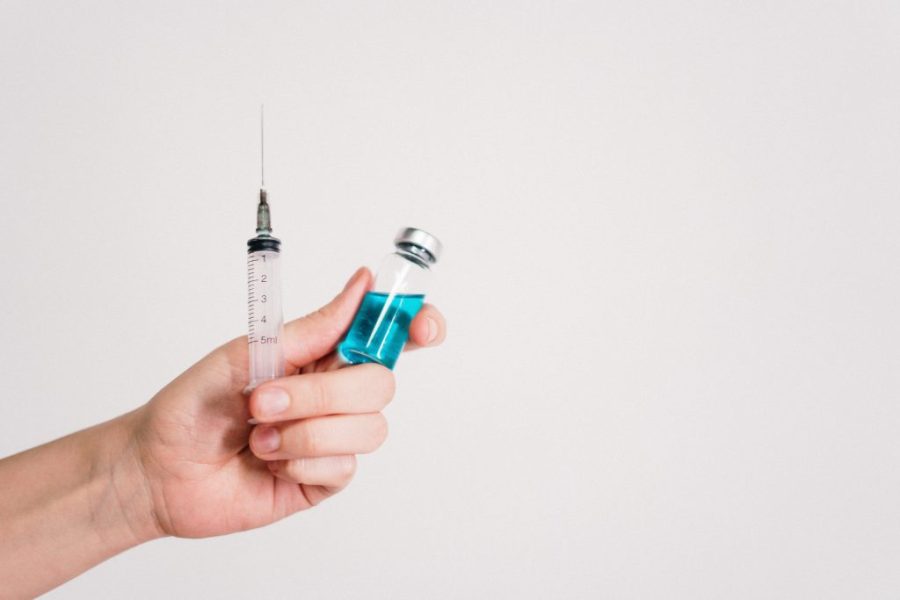Vet Feed Directive How It Was Approved
Let's face it… cats don't love the vet. If you asked them, their answer to how often they need to go to the vet would probably be "never." Unfortunately for them, and luckily for you, they don't get a say in the matter.
If you're a first time cat owner, or you're just looking for some tips to keep your cat as healthy as possible for as long as possible, the importance of regular trips to the vet can not be understated.
But how often do you really need to take your cat? And what else can you do to keep them healthy? Let's find out.
Do Cats Really Need To Go To The Vet?

As much as they would prefer to just stay home, cats really do need to go to the vet. It is important for a variety of different reasons.
Prevention really is the most important reason to take your cat to the vet on a regular basis.
When you establish with a veterinarian early on, they'll be able to get all of the vaccines that they need to help prevent a whole host of different, potentially deadly diseases (we'll get into those later). Regular visits can also help identify medical conditions early, before they have a chance to create havoc.
In addition, as much as cats generally don't enjoy going, having a relationship with your veterinarian may be able to help your cat feel more comfortable when they do have to go.
A good way to help guarantee this is to choose a vet that specializes in feline veterinary medicine, as there are plenty of different cat-only practices out there. That way, you'll be able to feel far more confident that your vet will be more than accustomed to dealing with fussy cats, even if they tend to get a little extra sassy when they're there.
Having an established vet can also help both you and your cat in the event of an emergency.
As much as we don't like to think about it, emergencies with your cat can happen. When you already have a vet, you have a great resource to be able to reach out to if you're concerned about something after hours. If it's a real emergency, you'll already know where your vet is located so that you can get there quicker during a time when it can potentially make a difference.

Alright, let's get into it. The answer to that question really depends on how old your cat is and if they have any health problems, so we'll start from the beginning so we can hit all the highlights.
Kittenhood
If you're getting your new fur baby as a small kitten, start here!
Kittens will need to be established with a veterinarian as soon as you get them, preferably within a day or two, no matter how old they are.
This is to help make sure that they are as healthy as possible, and to treat any potential health conditions that they may have picked up from the home, breeder, or shelter that they came from before they get a chance to cause bigger issues. Commonly, this involves testing them for things like feline immunodeficiency virus (FIV) and feline leukemia.
You'll want to bring with you any paperwork that you got from the place you adopted them, a stool sample, and some tasty, kitten friendly treats to help make their experience as pleasant as possible. It's also strongly recommended that you bring them to the vet in a carrier, to keep them as safe as possible and to give them a place to retreat to if they're feeling scared.
From there, it is recommended that your kitten be seen every three to four weeks until they hit four months old.
The first vaccinations usually occur between six and nine weeks of age, unless your kitten is showing any signs of illness (upper respiratory infections are common in little ones). You'll then return for boosters every few weeks until the final kitten visit, which will be when your kitty will get his or her rabies vaccine.
The importance of these regular kitten visits isn't just for the vaccinations (although those are very important). It's also a way to touch base about any behavioral concerns, get tips for litter box training, and just generally have a source of support during the sometimes tricky kitten months.
At some point, your kitten will also be spayed or neutered (which should occur before their first heat cycle, normally around six months of age).
Adult Cats
Once your kitten has turned into a full blown cat, the visits won't need to be as frequent provided your cat continues to be healthy. Adult cats are generally considered to be those from one to seven years old.
Most vets recommend bringing your cat in for a regular check-up just once a year for a full, nose to tail wellness exam. While ordering occasional blood work isn't as necessary on cats as it is on dogs, your vet may suggest a variety of different tests depending on your specific cat. They will also get a booster on their rabies, and potentially other vaccines if your cat is allowed to go outside.
Senior Cats
After your cat hits seven, they'll likely be bumped up to visits twice a year. At this point, your vet may recommend regular blood work even if they appear healthy, because cats are notorious for not showing signs of illness. Normally, this involves checking for kidney, thyroid, and liver function as well as a general white blood cell count.
This is also a good time to mention any potential changes in behavior that you've noticed. Things like drinking more water than normal, having trouble using the litter box, or not wanting to be petted as much may indicate a deeper health issue that needs to be evaluated. Yearly boosters of vaccines will be given as well.
Common Feline Vaccines

Let's touch on the feline vaccines that are usually recommended for cats, and how often they may need to be given.
The science and research behind vaccines is constantly changing and adapting, so be sure to check with your veterinarian for the most up to date information.
The vaccines are divided up into two categories: the "core" vaccines, and those that are given situationally. The decision on what vaccine falls into what category is up to the individual veterinarian, who usually follows the lead of the American Academy of Feline Practitioners (or AAFP).
In 2021, there are four different core vaccines: feline panleukopenia (FPL), feline viral rhinotracheitis (FVR), feline calicivirus disease, and rabies.
Luckily, many of those vaccines are actually combined into a single shot. The FVRCP shot includes protection against feline viral rhinotracheitis (the FVR), feline calicivirus disease (the C), and feline panleukopenia (the P). It will be given at 6 to 8 weeks, at 10 to 12 weeks, and at 14 to 16 weeks of age with a booster every three years.
Your kitten will get their first rabies vaccine between 14 and 16 weeks of age as well, with boosters every one to three years depending on the state that you live in.
There are also four other discretionary (or optional) vaccines that may be recommended for outdoor cats or cats living in specific environments: feline chlamydiosis, feline leukemia disease complex, feline infectious peritonitis, and bordetellosis.
These vaccines normally stay on the same schedule as the core vaccines.
Microchipping

If your kitten came from a shelter, they've likely already been microchipped before you were able to adopt them. However, if you're adopting from a breeder or getting them directly from a friend or family member, having them microchipped is definitely something to consider. This is especially true if they will be allowed to be outdoor cats, even for just a portion of the day.
Microchipping just involves inserting a small microchip that contains your contact information under the cat's skin. It only hurts for just a moment, and can give you a massive amount of peace of mind that your cat will be able to make its way back to you in the event that they slip out the door and get lost.
If you're worried about the pain, many vets will insert the microchip during your kitty's spay or neuter surgery. That way, they'll already be under anesthesia and won't notice a thing.
In Conclusion…
How often you should take your cat to the vet really depends on how old it is and when you get it.
Keeping up with regular veterinary care, and recommended vaccines, can help make sure that your healthy kitten turns into a healthy cat and eventually a healthy senior.
Your cat is your baby, so make sure to treat them that way by making sure to follow up with routine wellness visits. You'll both feel better.
Sources:
American Association of Feline Practitioners: AAFP (catvets.com)
Vaccines for Cats | VCA Animal Hospital (vcahospitals.com)
What To Expect During Your Kitten's First Vet Visit (chewy.com)
Source: https://www.reference.com/pets-animals/how-often-do-you-take-a-cat-to-the-vet?utm_content=params%3Ao%3D740005%26ad%3DdirN%26qo%3DserpIndex&ueid=525b5d36-2729-49c1-bb6b-ea642680ea6a
0 Response to "Vet Feed Directive How It Was Approved"
Post a Comment